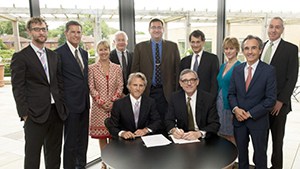
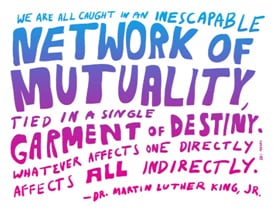
Organisations can unlock meaningfulness when they use mutuality as a management philosophy inside their organisations and beyond to their external stakeholders. Mutuality describes how we are to live with one another. Mutual organisation creates the conditions under which we are prepared to join our effort to those of others in order to secure together what one cannot secure alone. As a framework for organising, mutuality fosters relationships consistent with desirable civic and human values. As a strategic principle, mutuality stimulates the social practices need for work design, collaborative knowledge building and innovation. Mutuality can be translated into ownership (cooperatives, mutuals and employee ownership) – it can also be a general approach for all kinds of organisational forms, including shareholder, family, social enterprises, B-corporations and civic associations.
Corporations are concerned about the future sustainability of supply chains which fail to produce sufficient value for fair distribution between stakeholders, or which create value by means which risk environmental or social harms. it is too common for producers and suppliers to suffer insufficient and unreliable income streams, a lack of decent work and diminished opportunities for human capability development. In early phase CSR initiatives, corporations have relied upon the remedy of voluntary codes, certification schemes, participatory initiatives and private governance arrangements. Despite these efforts, many supply chains continue to languish in low fairness equilibria: trapping producers and suppliers in potentially exploitative relationships, where power imbalances expose the weaker party to vulnerabilities.
Escaping the low fairness trap will require innovations in supply chain practices which link values to value creation. Here, values of fairness, care and flourishing in supply chains have an important role to play, and are explored in my project on ‘values to shared value creation in sustainable supply chain management’. The project is funded by Oxford’s John Fell Fund, involving Dr Lauren McCarthy, Royal Holloway University of London and Dr Milena Mueller Santos, University of Oxford. Our participating organisations include Primark and their partners, CottonConnect and SEWA (self-employed women’s association).




Yeoman, R. & Mueller Santos, M., Fairness and Organizational Performance: Insights for Supply Chain Management” (November 11, 2016). Saïd Business School WP 2016-33.

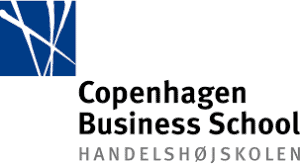
Yeoman, R (2016). Care, Emotions and Deliberation in the Corporate Management of Ethical Supply Chains. Business, Policy & Sustainability Conference, Copenhagen Business School. 16-17 June, 2016.
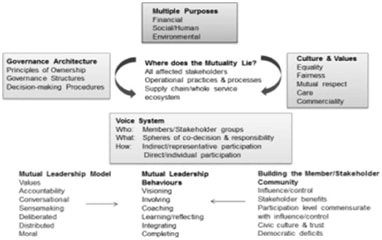 For Rochdale Boroughwide Housing (RBH), we used the mutual organisation model to develop a mutual leadership programme which helped co-owners establish the culture and behaviours needed for mutual ownership. RBH is a dual constituency mutual – jointly owned by employees and tenants. A case study of the organisation can be found in the Oxford Handbook of Mutual, Co-operative and Co-owned Business.
For Rochdale Boroughwide Housing (RBH), we used the mutual organisation model to develop a mutual leadership programme which helped co-owners establish the culture and behaviours needed for mutual ownership. RBH is a dual constituency mutual – jointly owned by employees and tenants. A case study of the organisation can be found in the Oxford Handbook of Mutual, Co-operative and Co-owned Business.

Yeoman, R. (2017). From Traditional to Innovative Multi-Stakeholder Mutuals: The Case of Rochdale Boroughwide Housing. In: Blasi, Borzaga&Michie (eds.) the Oxford Handbook of Cooperative and Mutual Business. Oxford: Oxford University Press.

Mutuals in Health Pathfinder: Feasibility Study for Surrey & Sussex Healthcare NHS Trust. Cabinet Office 2015
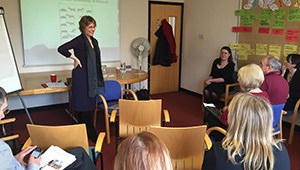

Yeoman, R., Batten, S., Stroll, D. & Andersen, B. (2017). Intangible Gold. Research and Policy Papers on Intangible Assets for the Big Innovation Centre. http://www.biginnovationcentre.com/media/uploads/pdf/IG_Dynamic%20Model%20and%20Stakeholder%20Value_060717.pdf

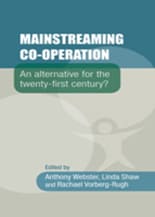


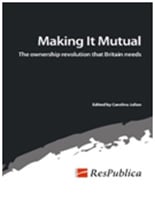
‘Governance and Voice: How mutuals and employee owned businesses create stability, resilience and legitimacy’. https://www.respublica.org.uk/our-work/publications/making-mutual-ownership-revolution-britain-needs/

